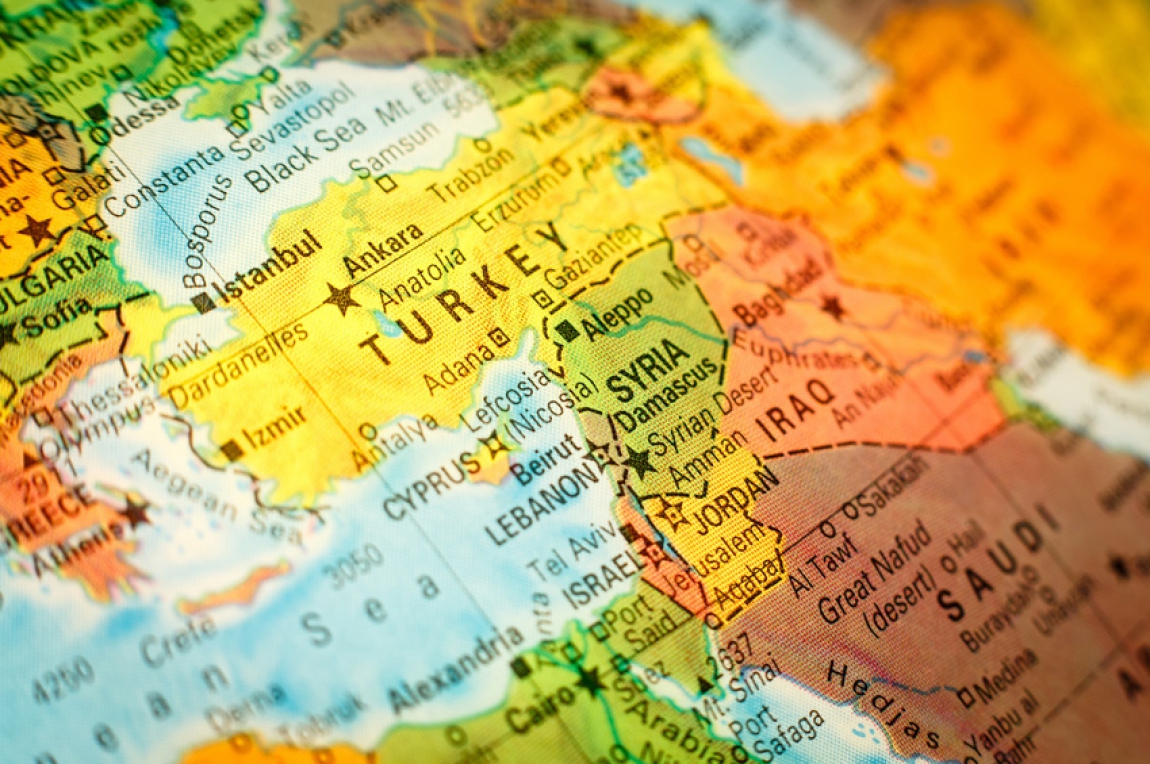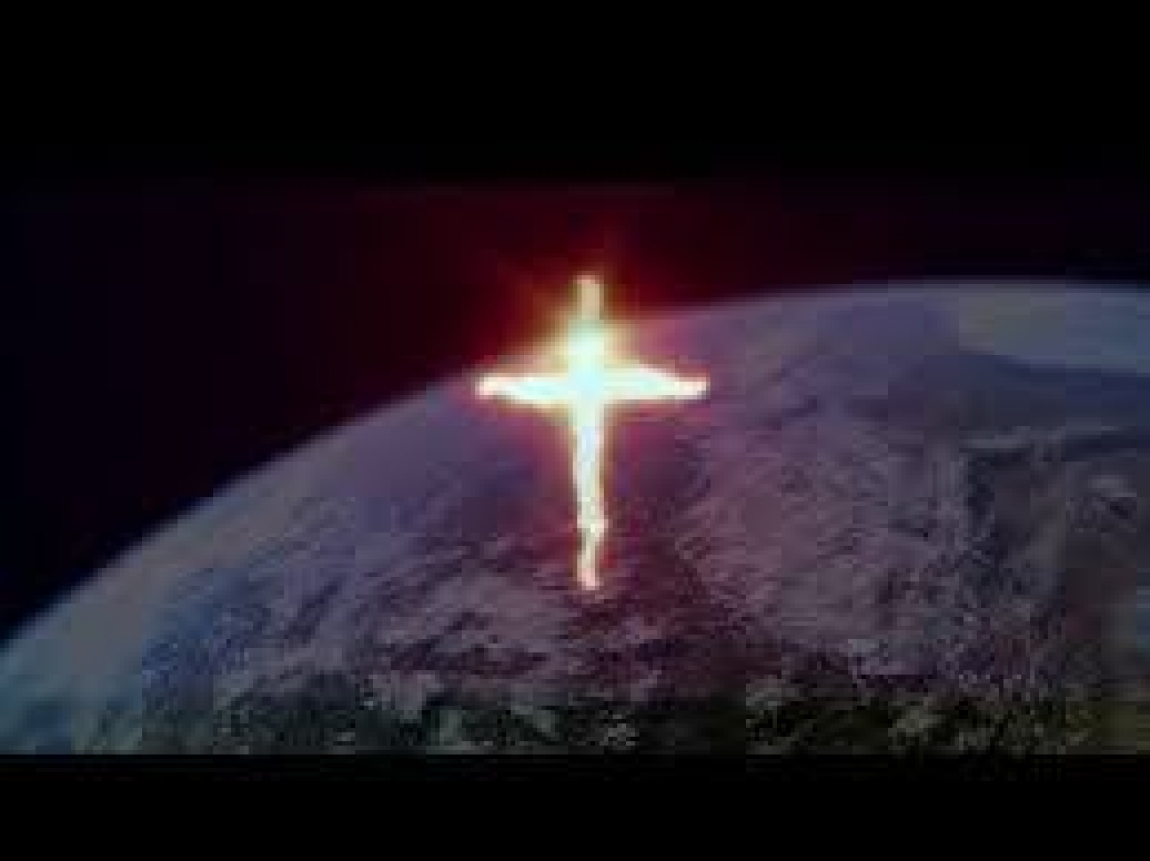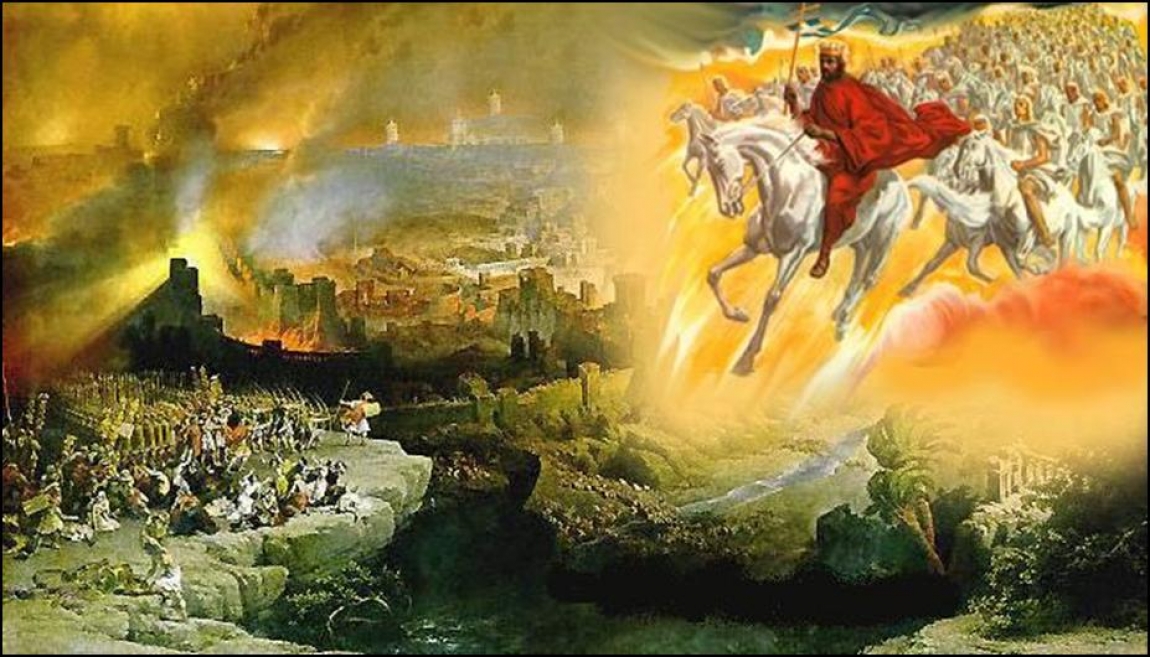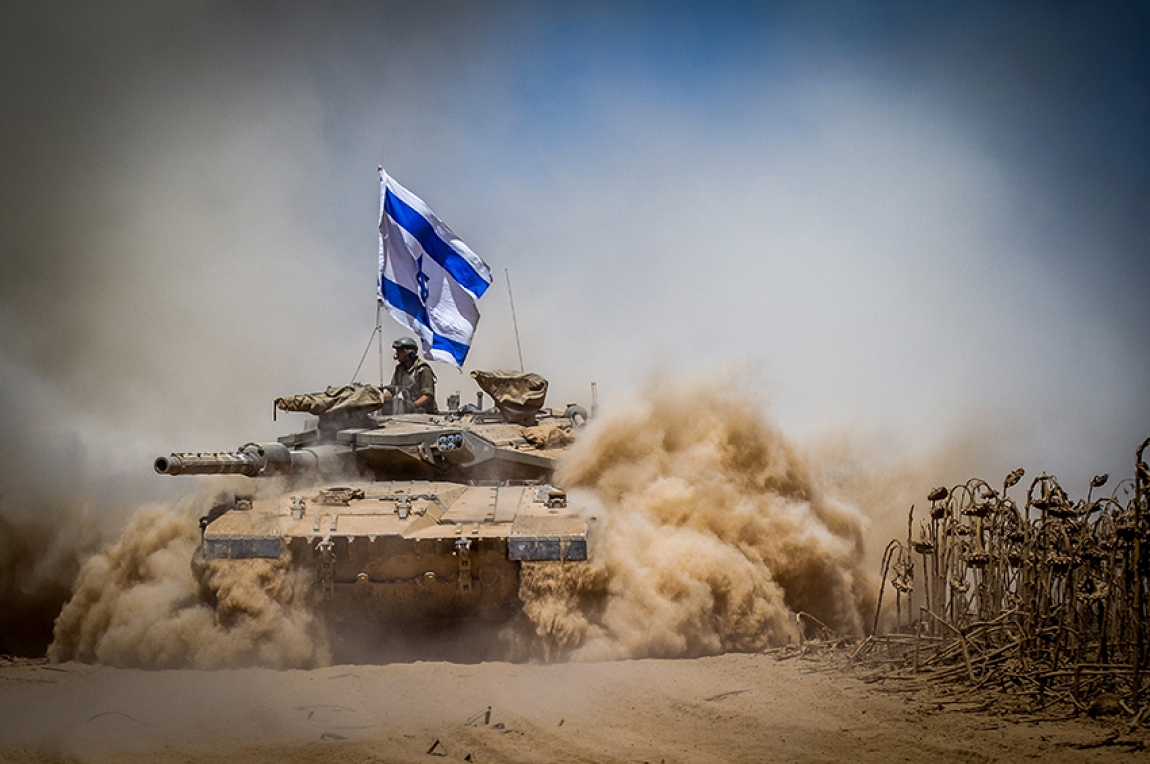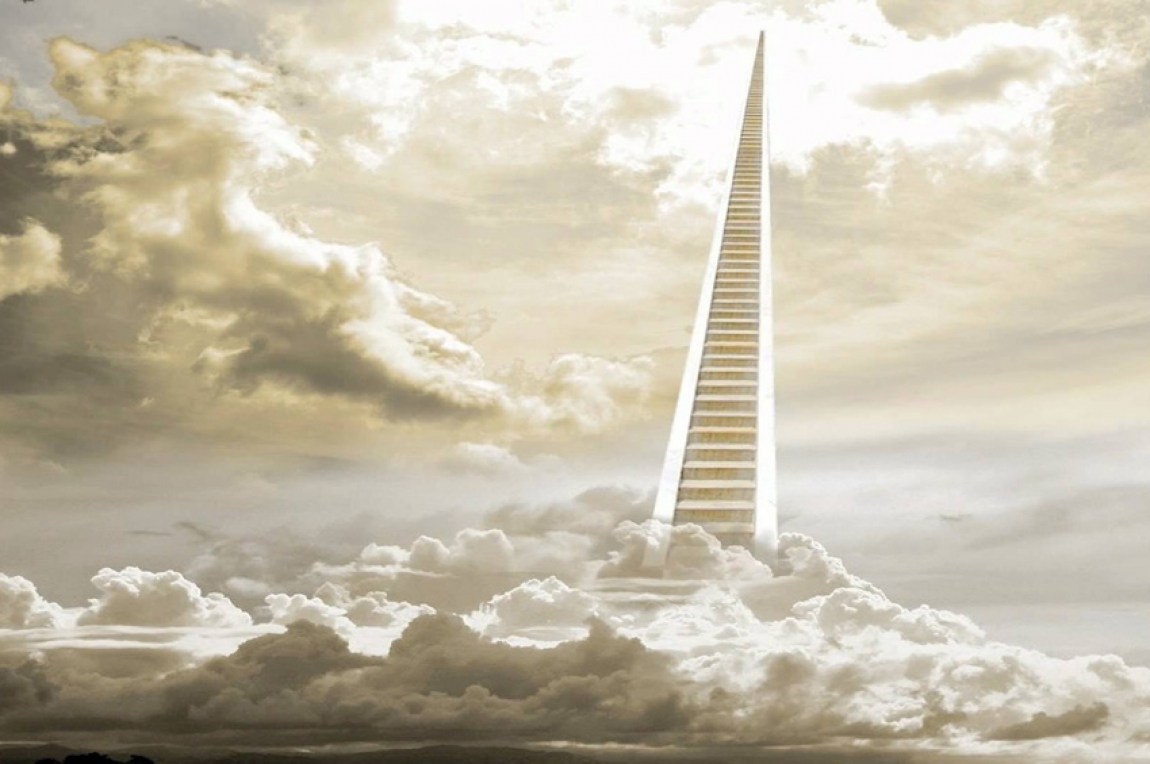Without any doubt, one day Russia will attack Israel, the Torah says so”: Benjamin Netanyahu, Prime Minister of Israel 1996-1999.
“And I will turn thee about, and I will put a bit in thy jaws: and I will bring thee forth, and all thy army” (Ez, 38, 4): Russia will resist entering the war, but will finally do so.
From the prophetic point of view, Israel is God’s “watch”, the chronometer that tells us how near or far we are before the present times of the nations and the Church come to an end, and the Messianic times of the kingdom of Christ begin.
Precisely because of this, because of the events we are witnessing, we can be sure that the world is about to change abruptly and drastically from circumstances that will affect Jews, Christians and Moslems in the first place, but also the other religions on earth.
The whole history of Israel is characterised by various moments of punishment and Divine silence, always due to the infidelities of the people adopted by Him. Scriptures highlight that the exiles and dominations (of Egypt, Babylon, Persia, Greece, and Rome) were allowed by God because His people had broken the covenant. On their own, these corrections, on the part of God, are indirect proof that effectively they are the chosen people, and they are so even in spite of this.
The last of God’s punishments happened in the year 70 of our era for having rejected His own Son. The roman Emperor Titus flavius Vespasian ordered the total destruction of Jerusalem, forcing the Jews to abandon the Promised Land and to emigrate to the whole world. As Christ Himself had predicted, not “a stone upon a stone” remained of the Temple.
Thus the present silence, the last of the silences of God regarding the Jews, goes from the extraordinary divine manifestation on the day of Pentecost, to the sound of the first trumpet of the Apocalypse. This is the longest divine silence in history.
Now the prophet Ezequiel predicted that, after the dispersion, the Israelites would come together again in the Promised Land: “Behold, I will take the children of Israel from the midst of the nations whither they are gone: and I will gather them on every side, and will bring them to their own land.” (Ez. 37, 21). This prophecy was fulfilled on the 14th of May 1948. From that moment on, the so called “End times” formally started.
In the Old Testament, God’s attention was centred on the Jews and their presence in the Promised Land under the law that God gave to Moses. In the New Testament, God keeps silence regarding His people and His attention is centred on His Church, offering salvation to all the Gentiles.
When the call of God to form part of the Church is completed, the time of grace will end, God will take away the faithful Church by means of the first resurrection and the rapture of the faithful and He will once again concentrate on His plan of salvation for the Jews.
Thanks to the prophet Ezequiel we know how God will break His silence, before the period of the Great Tribulation starts. He describes a battle, commonly known as the “War of Gog and Magog”, in which God will marvellously destroy an alliance of invaders who will attack Israel, as well as the nations from whence these armies came.
The War of Gog and Magog is a conflict unique in its chronology, in its purpose, in its characteristics and effects on Israel and on the whole world.
Ezequiel predicted that after having come together again in the promised land, in the end times, the Israelites would be attacked by enemies from the North (Arab countries) together with Russia: “Behold I come against thee Gog, the chief prince of Mosoch and Thubal (Present day Russia) (...) I will take you out with all your army (...) With them are Persia (Iran), Cus (Ethiopia) and Fut (Libya) all of them armed with shields and helmets. Gomar, with all its troops, and the house of Thogorma (Turkey), from the far North with all its troops and many peoples with thee (...) after many years thou shalt invade a country saved from the sword, gathered out of many nations, to the mountains of Israel (....) in the last days thou shall attack my people Israel like a cloud to cover the earth (Ez. 38, 3-8, 16).
Throughout Chapters 38 and 39, the names of Gog and Magog are used jointly as a title which names the combination of a great adversary of God: Gog as a “Prince”, and Magog as a country or region. Twice he uses “Magog” to indicate the territory from where the leader called “Gog” originates, which in old Hebrew means “Haughty”. By mentioning “Gog” as coming from the “Far north”, Ezequiel seems to be indicating the highest level of authority within an alliance of nations of what today are the ex-soviet republics, a territory of the old kingdom of Anatolia and beyond the Caucasus.
This world war, in which various countries will unite to attack Israel , will end, Ezequiel says, with a marvellous divine intervention which will thwart the invasion. Months later, the false peace agreement will take place, signed by the person the prophet Daniel calls the “Fourth beast” (Called the “Antichrist” by St. John), who will rule the world for seven years: “for another week he will seal an agreement with many” (Dn. 9, 27). Christ calls this period the “Great Tribulation” and it is the period in which humanity will be purified and prepared for His glorious Return, an event which ends the times of the Church and of the nations, and signals the beginning of the new messianic times of the Kingdom of God on earth.
The war against Israel described by Ezequiel, which is prior to the seven years of the Great Tribulation, will be foiled by a direct action of God: Thou shalt fall upon the mountains of Israel, thou and all thy troops and the nations that are with thee (....) and I will make my holy name known in the midst of my people Israel, and my holy name shall be profaned no more: and the Gentiles shall know that I am the Lord, the Holy One of Israel. (EZ. 38, 21).
The prophet tells us that the armies that will attack Israel will be defeated in a miraculous and dazzling way: by means of a great earthquake (Ez. 30, 19); by storm, huge hailstones, fire and sulphur (Ez. 38, 22). And by a confusion so great that the aggressors will begin to kill each other (Ez. 38, 21).
This divine intervention to protect Israel will revive in the Jews the sense of their chosenness, but will confuse them making them believe that the vanquished Russian leader is the fourth beast of Daniel, and that the promoter of peace is the Messiah, when in reality it’s the Antichrist, the false Messiah of the Jews and the world.
It must be pointed out that the world war described by Ezequiel is not, as is erroneously thought at times, the battle of Armageddon, which will be another military campaign that will take place towards the end of the Great Tribulation, once the Antichrist has broken the peace agreement and turns against the Jews themselves. The campaign of Armageddon is described by the apostle St. John in the book of the Apocalypse (Apoc. 16, 12-16), which is what will bring about the Parousia, as Christ in person will return to save Israel from the destruction that the Antichrist will try to inflict.
All in all, the war of Gog and Magog can also be called “Armageddon” because it also will take place in the valley of Armageddon, in the plane of Megiddo, to the North of Israel, but they clearly differ from each other, both in time and circumstances.
The seven years of the Great Tribulation, also known as the “70th week of Daniel” (which is the time remaining in the prophecy of the 70 weeks, of which 69 weeks have already been fulfilled; they are two parts divided in three and a half years, or each half of 1260 days exactly. (Apoc. 12, 14; 13, 5; Dn. 7, 21).
In the middle of the week, i.e. three and a half weeks after the commencement of the Great Tribulation, the Antichrist will break the peace agreement, will outlaw the holy sacrifice, and will unleash a persecution against all those who will not submit to his governance: “in the middle of the week he will make the sacrifice and oblation cease; and in the wing of the Temple there will be devastating abominations until the end, when the decreed ruin will be poured out on the destroyer” (Dn. 9, 27).
Predictably, the War of Gog and Magog will be after a prior attack by Israel on Syria. This attack which was prophesied by Isiah, apparently consists of a nuclear strike, since the Syrian capital is completely destroyed: “Lo, Damascus will cease to be a city; it will be a mountain of ruins. The Kingdom of Damascus shall cease, and what remains of Syria will be like the glory of the sons of Israel, says the Lord of hosts” (Is. 17, 1-3; 9). Jeremiah and Amos also point out that Damascus will be destroyed by fire (Jer. 49, 23-27; Am 1, 3-5).
Isiah establishes a relationship between the devastation of Lebanon (Is 10, 23-25; 34) and the total destruction of Damascus. Both nations are Assyrian, and Lebanon has been essentially under the control of Syria.
The War of Gog and Magog will mean significant changes for Israel, for the Middle East and for the whole world.
Israel will go through a period of cleaning up and burying the corpses of its enemies which will last seven months (Ez. 39, 11-16), which indicates the magnitude of this conflict.
With the divine intervention in the War of Gog and Magog, Israel will spiritually awaken to God, to the God of the miracles of the Old Testament. The Jews will gather together and celebrate in Israel while the nations who tried to attack her will lament their dead.
Israel will expand its borders, it will again acquire total control over Jerusalem and will rebuild the Temple; but Islamic fundamentalism, supported by international Zionism, will impose Sharia law against the true God Jesus Christ.
The nations of the Middle East and many people will openly acknowledge the God of Israel, but without distinguishing that this God became man in the person of Christ.
The whole world will then proclaim erroneously that the battle that just happened was the battle of Armageddon, that the millennium of wellbeing has commenced, and that the new leader emerging from the ashes of this global conflict is the long awaited Messiah.
But in reality, what will have happened is the supreme deception, and the final battle between good and evil, between the anointed one of Satan and the true Messiah, who will return seven years later at the end of this period of Tribulation.
However violent and corrupt we may perceive the present world situation, however absent and silent God appears to be regarding the situation, the truth is more than clamorous. The silence of God during this era can be compared to the stillness that precedes the storm. The storm will be the fulfilment of the period of God’s judgements known in the prophecies as “The day of the Lord”.
God will not remain silent for ever. In the words of Isiah, “Out of love for Zion I must not be quiet, out of love for Jerusalem I must not be silent” (Is. 62, 1).
The focus of the prophecy of Gog and Magog is significantly the involvement of God in the first person. He will not use people like Moses or Aaron against the Egyptian pharaoh, and neither is there a reference here to the two witnesses of St. John (Another reason that makes us concludes this war is prior to the 70th week of Daniel.
At the beginning of the two chapters 38 and 39, God declares “Behold I am against thee, Gog...” God Himself in person shows His anger towards Gog and his alliance of nations for being against Him. And God Himself is the one who provokes him to leave Magog and go against Israel, making him fall into the trap: “I will turn thee about (....) and I will make you leave with all your army” “I myself will bring you against my people” (Ez. 38, 4).
Some authors believe that the reference to “I will bring thee about” and to be brought “with hooks in your jaws” (Ez. 38, 4) is a reference to Gog or Russia resisting entry to the war but finally being dragged in by the coalition of western pro-Zionist nations.
The opening of the first seal of the Apocalypse which we will be seeing shortly, is the public manifestation of the Antichrist, since his way of acquiring international prestige will be by his apparent character as “peacemaker”. This will happen after the Pope has fled Rome, according to St. Peter (2, Thes. 2, 3-8).





